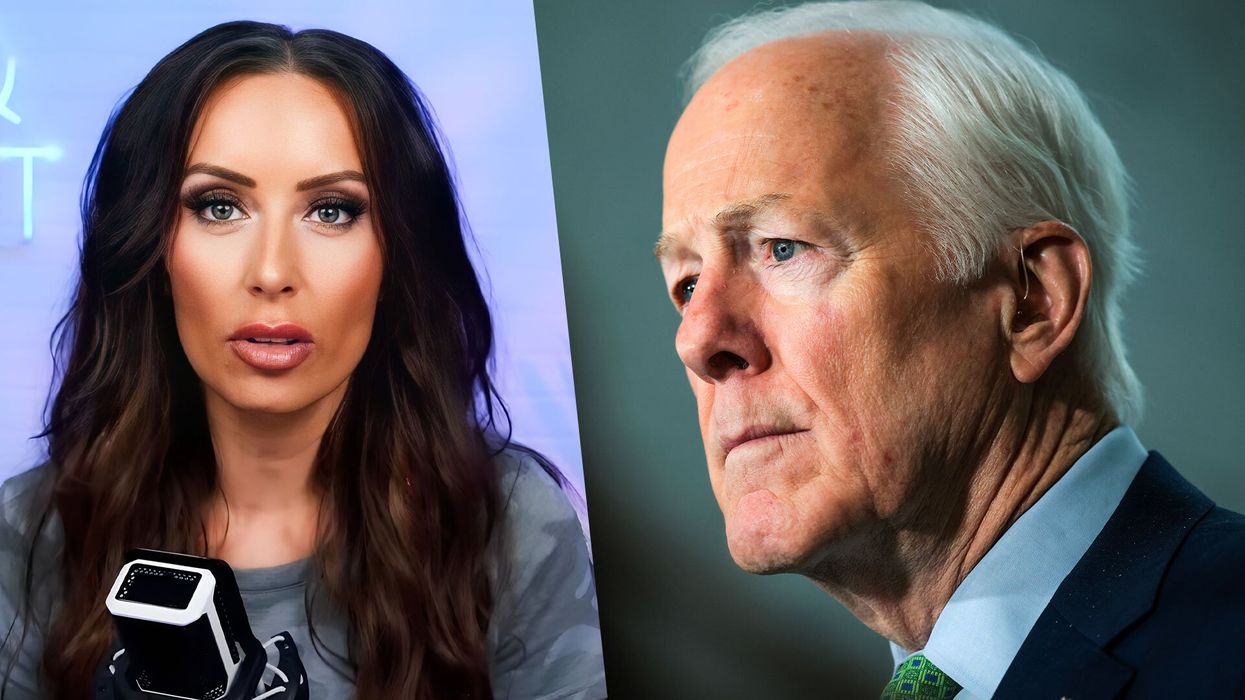
© 2025 Blaze Media LLC. All rights reserved.
Report: No IRS Workers Have Been Disciplined & Union Says It Hasn't Been Contacted on Personnel
May 22, 2013
Plus, what’s it going to take to clean house?
 Left to right: Lois Lerner, the director of the exempt organizations unit at the Internal Revenue Service, and ex-IRS chiefs Steven Miller and Douglas Shulman. (Getty Images)
Left to right: Lois Lerner, the director of the exempt organizations unit at the Internal Revenue Service, and ex-IRS chiefs Steven Miller and Douglas Shulman. (Getty Images)
Despite the Obama administration’s repeated promises to get to the bottom of the Internal Revenue Service's political targeting scandal, nothing has been done.
And it looks like nothing can be done for quite some time.
Although IRS officials have known about the targeting of conservative groups since at least 2011, not a single employee has been reprimanded. In fact, according to a spokesperson for the National Treasury Employees Union, the union for IRS employees hasn’t even been contacted to deal with certain personnel.
“Why weren’t more people fired?” Senate Finance Committee Chairman Max Baucus (D-Mont.) asked Tuesday during a hearing on the scandal.
Indeed, if employees engaged in behavior that even President Obama has characterized as “outrageous,” then why hasn’t anything been done?
POLITICO explains: “Most employees involved in the targeting program are covered by protections for federal workers that could drag out the termination process.”
In fact, according to the same report, the process for firing someone like Lois Lerner, the top IRS official who first acknowledged the agency's inappropriate targeting of conservative groups two weeks ago, is an arduous, bureaucratic nightmare.
Here’s how the Washington-based news agency explains the process:
The incoming acting IRS Commissioner, Daniel Werfel, could try to clean house — but he’d have to be prepared for a lengthy appeals process.Under federal rules, a fired government worker has the right to appeal to the Merit Systems Protection Board. He or she can challenge the decision, argue that their actions don’t meet the threshold for termination and ask to be reinstated — especially if there was no warning of trouble in past performance reviews.
The board is set up so fired employees appealing their termination get two chances to prove they should stay. Their first stop is at the merit board’s regional level, which — for the Cincinnati-based IRS employees in question — would be in Chicago.
The initial appeals take an average of 93 days to process, said William Spencer, a spokesman for the board.
If the regional board rules against the IRS employees, they could appeal to the national Washington, D.C.-based board, which takes on average another 245 days.
The IRS employees wouldn’t collect a paycheck during the appeals process. They would get back pay only if they are ultimately reinstated.
Of course, you could always go the Raymond Maxwell route and force employees to take “administrative leave.”
“But IRS workers could always fight back if they’ve had positive performance reviews until now — and the board has been known to mitigate penalties if an employee is a first-time rule violator,” POLITICO notes.
“Making this case about conduct does make it easier, however, to skip one part of the disciplinary rules for federal workers.”
Federal rules are written in such a way that if a public employee is terrible at his job, he is given a chance to improve before being fired.
However, if it’s a “conduct case” (like the IRS scandal), the agency is not required to inform the employee that he needs to "improve." And here’s something else to consider: an IRS commission can let go of any employee -- without appeal -- if said employee commits any of the “10 deadly sins” explained in the agency’s 1998 overhaul law.
“The ‘sins’ include falsifying information or destroying documents to cover up mistakes, violating a taxpayer’s constitutional rights, abusing privacy clauses to conceal information from a congressional inquiry and threatening to audit taxpayers for personal gain or benefit,” the report notes.
J. Russell George, the Treasury Inspector General for Tax Administration, at Tuesday’s hearing said IRS employees could be let go under these circumstances.
However, he added, it depends on whether it can be proven that they knowingly committed the “sins.”
And if none of the above options work, you can always hope bad employees resign.
"Outgoing acting IRS Commissioner Steven Miller, for example, could have hung on if he’d really wanted to," POLITICO notes. "Just because he was filling in for a politically appointed position doesn’t mean he can be fired by the president like political appointees typically can."
But pressure and public outcry put Miller in a position where it became obvious that he couldn't stay on as department interim chief. The same type of pressure could be applied to Lerner.
Click here to read the full report.
On TheBlog: Vote: How will Obama scandals impact the GOP?
----------
Follow Becket Adams (@BecketAdams) on Twitter
Featured image Getty Images.
Want to leave a tip?
We answer to you. Help keep our content free of advertisers and big tech censorship by leaving a tip today.
Want to join the conversation?
Already a subscriber?
more stories
Sign up for the Blaze newsletter
By signing up, you agree to our Privacy Policy and Terms of Use, and agree to receive content that may sometimes include advertisements. You may opt out at any time.
Related Content
© 2025 Blaze Media LLC. All rights reserved.
Get the stories that matter most delivered directly to your inbox.
By signing up, you agree to our Privacy Policy and Terms of Use, and agree to receive content that may sometimes include advertisements. You may opt out at any time.





